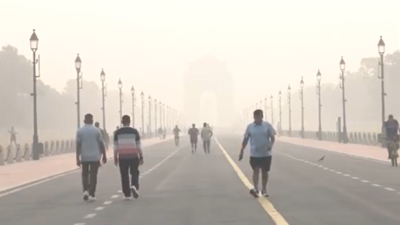- News
- City News
- delhi News
- Delhi pollution: Air quality reaches 'very poor' levels
Trending
Delhi pollution: Air quality reaches 'very poor' levels
Toxic foam on the Yamuna River and worsening air quality in Delhi mark a growing environmental crisis. Despite a decline in stubble burning, the air quality index (AQI) remains in the 'very poor' category, with figures around 309. Residents report breathing difficulties, and despite a ban, the use of firecrackers persists. Environmentalists call for better governance.

The Air Quality Index (AQI) has reached 346 in Shakurpur and its surroundings, categorised as 'Very Poor' by the Central Pollution Control Board (CPCB).

Track the pollution level in your city
"I have to leave for college early in the morning, and I find it difficult to breathe because of this rising pollution. Firecrackers are banned in Delhi, yet many were set off yesterday. This indicates that the government is failing to control pollution. Action is needed," said Kushal Chaudhary, a student.
On Sunday, Delhi's average air quality remained 'poor,' with an AQI of 264 at noon, deteriorating to 277 by 4pm and further declining to 289 by 8pm. In Anand Vihar, the AQI soared to 'severe' levels at 421 at noon but improved to 'very poor' by the evening. Predictions indicate that air quality may worsen further.
According to the Central Pollution Control Board, an AQI in the 'Severe' category can harm healthy individuals and severely affect those with pre-existing health conditions. Meanwhile, an AQI classified as 'Poor' can lead to breathing discomfort with prolonged exposure, while 'Very Poor' levels may result in respiratory illnesses over extended periods.
End of Article
FOLLOW US ON SOCIAL MEDIA











